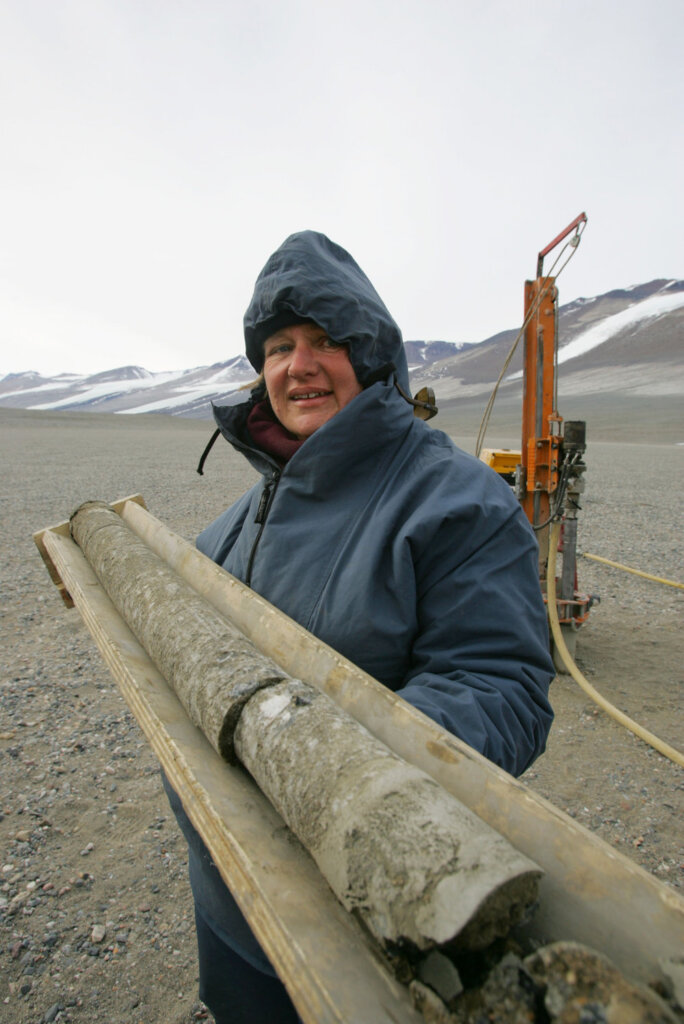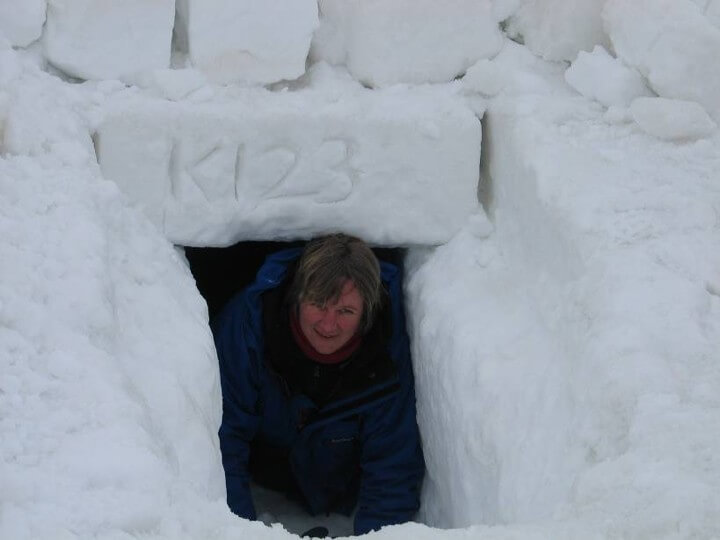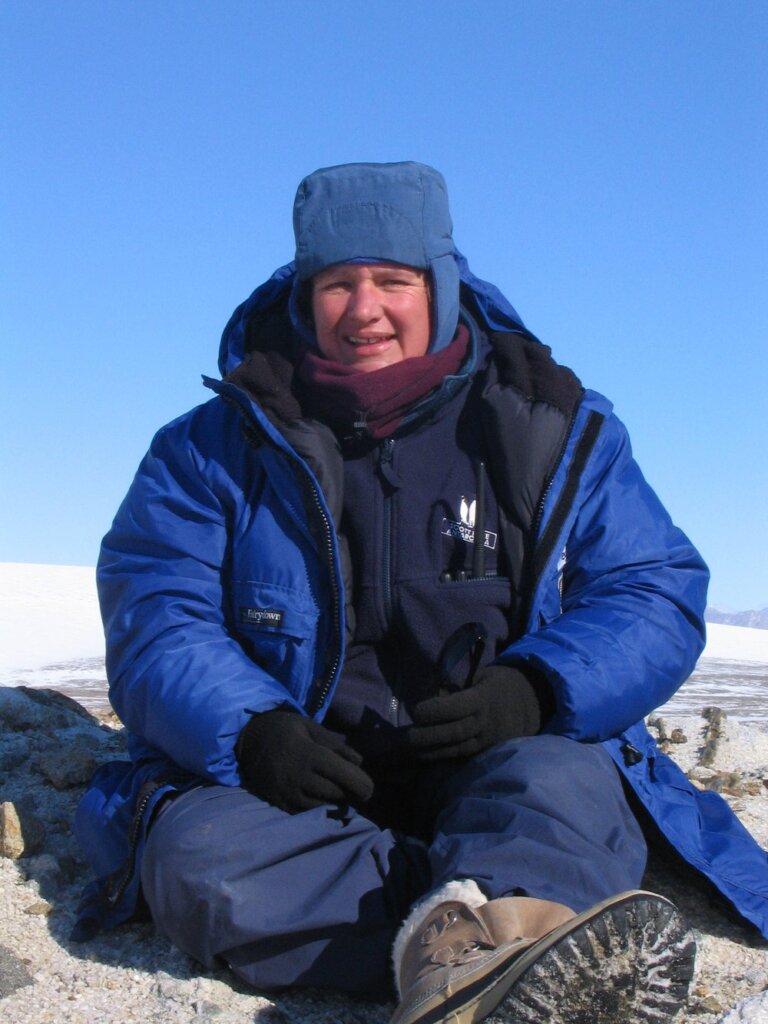
Megan Balks of Waikato University works in -15 c wind chill conditions in the Wright Valley one of Antarctic’s dry valleys. Balks’ team is drilling for ice core samples (pictured) that are believed to be thousands of years old. Photo: Martin de Ruyter, © Antarctica New Zealand Pictorial Collection.
Puketōtara soil scientist Megan Balks has been awarded the New Zealand Antarctic Medal for her services to Antarctic soil science.
She is one of three from The News’ circulation area.
See: The News columnist honoured
See: Matangi professional director honoured
Balks owns a small hill country sheep farm at the end of Pekanui Road, 18kms south west of Pirongia which includes over 20 ha of QEII covenanted forest. From there, she persues her interests in wool crafts, landscape art, photography and geology.
She is a leading New Zealand soil scientist, contributing significantly to Antarctic soil research.
Balks completed a BSc(Hons I) in Soil Science at Massey University and worked for three years for DSIR Soil Bureau undertaking soil surveys for irrigation development in Central Otago then moved to the University of Waikato where she was employed as a “junior lecturer” and completed her PhD on “Impacts of meat works effluent irrigation on soil physical properties”.
In 1990, she joined other soil scientists beginning research into permafrost and human environmental impacts in Antarctica, going on to complete 19 Antarctic expeditions, 12 as field leader.

Megan Balks in an ice cave. Photo: Waikato University.
Through this research, a series of Antarctic soil climate monitoring stations were established that contribute to an international programme to monitor the effects of climate change in polar regions. Among her numerous publications, she co-authored the award-winning textbook ‘The Soils of Aotearoa New Zealand’ (2021), which includes coverage of the Ross Sea Region.
She lectured at the University of Waikato from 1988 to 2018, supporting 10 graduate students in Antarctic soils research. She helped develop links with the international scientific community in the subjects of Cryosols (soil in very cold environments) and permafrost (frozen ground), furthering scientific collaboration and recognition of research undertaken by New Zealand soil scientists in Antarctica. She was a member of the Crysol Working Group of the International Union of Soil Sciences from 2000 until 2023, with two years as co-chair.
Balks represented New Zealand on the Council of International Permafrost Association (IPA) from 2008 to 2022. She organised the first Southern Hemisphere IPA Regional Conference on Permafrost in 2019. She was a founding member and secretary of ANTPAS (Antarctic Permafrost and Soils), a working group of the Scientific Committee on Antarctic Research. Dr Balks has been a member of the Royal Society of New Zealand’s Committee on Antarctic Research, the New Zealand Geographic Board Committee of Place Naming in the Ross Sea Region of Antarctica, and president of the New Zealand Society of Soil Science from 2018 to 2020.
She also served on the Waikato Conservation Board and the QEII National Trust.

Megan Balks. Photo: Bette Flagler © Antarctica New Zealand Pictorial Collection.









